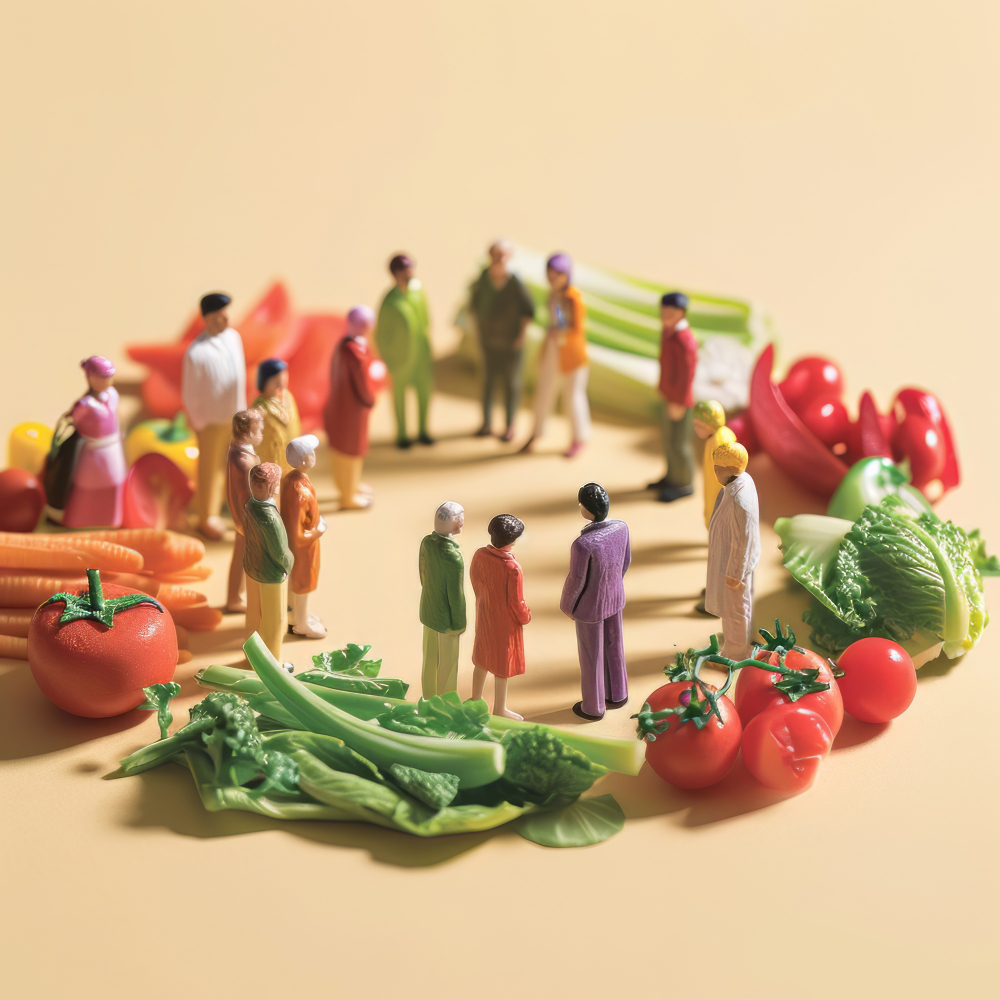From Farm to Fork: Why Food Traceability Matters and How It Impacts You
In this engaging episode, Francesca Felici, a seasoned food anthropologist, explores the intersections of food, data, and sustainability, as the future of food is being shaped by both technological advancements and strategic reforms. Francesca is currently focusing on food poverty and gender issues, conducting ethnographic research on food aid and gender dynamics.
Conversation’s BIG 3 takeaways:
- Francesca believes that “information, knowledge, and skills empower people!” Indeed, gathering knowledge from all of the data available to you will allow you to make better eating decisions.
- However, and this is the second point, we must be conscious of the social aspect of Food Data, particularly the disparity in information availability for people with low-income resources. It is important to provide a variety of sources of information to narrow this gap.
- Finally, reading books, is always one of the best things you can do! Check out the book on “Sweetness and Power”, it will give you insights on the role of sugar in shaping our modern society.
The Power of Data in Food Systems: A New Era of Transparency
In recent years, data has become a game-changer in the food industry, offering unprecedented insights and driving significant improvements in various areas.
- Enhanced Food Safety: Advanced technologies like blockchain and the Internet of Things (IoT) enable real-time tracking of food products from production to consumption.
- Resource Optimization: Food production can be streamlined to reduce waste and enhance efficiency.
- Consumer Empowerment: Data provides transparency regarding food origins, nutritional content, and sustainability.
- Economic and Environmental Benefits: Companies can use data to optimize operations, reduce costs, and monitor environmental impacts.
The EU’s Farm to Fork Strategy: A Comprehensive Blueprint for Sustainable Food Systems
The European Union’s Farm to Fork strategy is a cornerstone of the European Green Deal, aimed at transforming food systems across Europe. Here’s how this strategy is designed to create a more sustainable and equitable food system:
- Sustainability Goals: The strategy focuses on reducing the environmental and climate footprint of the EU food system. Key targets include reducing the use of chemical pesticides, fertilizers, and antibiotics, while promoting organic farming and increasing biodiversity.
- Health and Fairness: Ensuring access to nutritious and safe food for all, and promoting fair trade conditions along the supply chain are central objectives.
- Resilience: Enhancing the food system’s resilience against crises such as pandemics and climate change is crucial. The strategy incorporates policies and incentives to support farmers in adopting sustainable practices and adapting to changing conditions.
- Research and Innovation: Investment in research projects, such as those funded by the Horizon programs, supports the development of innovative solutions to meet the strategy’s targets and foster a sustainable food system.
Food Literacy: Empowering Consumers for Better Choices
Food literacy is increasingly recognized as a vital component of a healthy and sustainable food system. It encompasses the knowledge and skills necessary for making informed food choices. Key aspects include:
- Understanding Food Sources: Knowledge about where and how food is produced, including the benefits of organic farming and local sourcing, helps consumers make better choices.
- Nutritional Knowledge: Awareness of the nutritional content of foods and their impact on health supports informed dietary decisions, such as recognizing the importance of vitamins and minerals.
- Food Preparation Skills: Cooking and food management skills are essential for maintaining a healthy diet and reducing food waste. Learning how to prepare and store food properly can significantly impact overall health and well-being.
- Environmental and Ethical Awareness: Understanding the environmental impact of food production and the social factors affecting food systems helps consumers make choices that are both sustainable and ethically responsible.

Overcoming Challenges in Data-Driven Food Traceability
- Privacy Concerns: The collection of personal data raises privacy issues. Robust cybersecurity measures are essential to protect consumer information from misuse.
- Data Manipulation: Without stringent standards, there’s a risk of data manipulation, which can mislead consumers and undermine trust in food systems.
- Health Risks: Delays or inefficiencies in data traceability can pose health risks, particularly if contaminants are not quickly identified and addressed.
- Social Disparities: Access to data is not always equitable. Ensuring that all consumers, regardless of their socio-economic status, have access to reliable food information is crucial for fostering fairness in the food system.
Policy Recommendations for Enhancing Food Traceability
To build a more transparent and trustworthy food system, several policy measures can be implemented:
- Standardization of Traceability Protocols: Establishing uniform standards for data collection and reporting across the food industry can enhance consistency and reliability.
- Incentives for Technology Adoption: Providing financial support to small and medium-sized enterprises for adopting advanced technologies will facilitate widespread implementation of data-driven traceability systems.
- Investment in Education and Training: Developing educational programs for stakeholders—consumers, companies, and policymakers—will improve understanding and implementation of traceability systems.

This article is based on an extended discussion on the Digital Food Podcast; tune in and educate your network!

